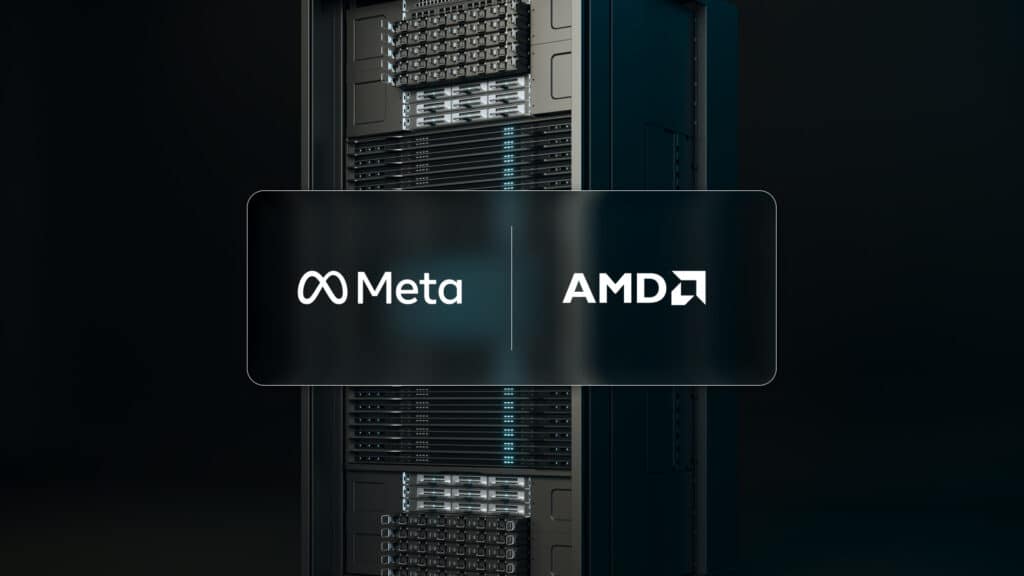Analyst(s): Olivier Blanchard
Publication Date: May 20, 2025
AMD has launched its EPYC 4005 Series CPUs for entry-level enterprise and hosting deployments. The Zen 5-based lineup targets SMBs with up to 16 cores, ECC memory, PCIe Gen 5 support, and a strong price-to-performance advantage over Intel Xeon chips.
What is Covered in this Article:
- AMD unveils EPYC 4005 Series CPUs for SMBs, hosted IT providers, and entry-level enterprise servers.
- CPUs range from 6 to 16 cores, support DDR5-5600 ECC memory, and offer up to 128 MB of L3 cache.
- AMD claims the 16-core 4565P outperforms Intel’s Xeon 6369P by 1.83x in Phoronix testing.
- OEMs, including Lenovo, Supermicro, and Vultr, are rolling out systems using EPYC 4005 processors.
- Hardware-level security features and broad OS support are included across the series.
The News: AMD has launched its EPYC 4005 Series processors, built specifically for small and medium-sized businesses and hosted IT service providers seeking affordable, enterprise-grade computing. Utilizing the Zen 5 architecture and the broadly supported AM5 socket, the lineup features 6 SKUs, offering between 6 and 16 cores, with support for ECC-capable DDR5 memory and PCIe Gen 5.
The company notes that its high-end EPYC 4565P model can deliver up to 1.83 times the performance of Intel’s Xeon 6369P at a lower cost. The lineup is backed by major OEMs and cloud service providers, including Lenovo, Supermicro, Vultr, and OVHcloud, and systems are available in a range of server-friendly form factors.
Can AMD’s EPYC 4005 Series Disrupt the Entry-Level Enterprise Server Market?
Analyst Take: AMD’s EPYC 4005 Series aims to deliver enterprise-grade performance and power efficiency in cost-sensitive deployments. AMD simplifies infrastructure by leveraging the Zen 5 architecture within the AM5 socket, offering single-socket configurations with high core density, advanced I/O capabilities, and efficient energy usage. The processors directly challenge Intel Xeon chips in both core count and price performance, targeting virtualized, hosted, and edge use cases in the entry-level server space.
Targeted for Cost-Efficient Enterprise Needs
The EPYC 4005 family addresses the critical concerns of SMBs, such as limited budgets, deployment hurdles, and extended lead times. AMD’s single-socket AM5 layout eliminates the complexity of dual-socket systems and offers up to 16 cores and 32 threads in compact, budget-friendly designs. All models come with dual-channel memory controllers supporting up to 192GB of DDR5-5600 ECC memory and 28 PCIe Gen 5 lanes, providing strong flexibility for scalable enterprise and hosted deployments. Pricing ranges from $239 for the 6-core 4245P to $699 for the 16-core 4585PX, which includes 128MB of L3 cache.
Strong Positioning vs. Intel Xeon
AMD’s approach competes directly with Intel’s Xeon E-2400 and 6300P lines, where Intel’s highest offering tops out at eight cores. In contrast, AMD’s 4565P brings 16 cores to the table at a comparatively lower price – $589 compared to $606 for Intel’s Xeon 6369P. Benchmark data from AMD, using the Phoronix suite, shows the 4565P delivering 1.83 times better performance, reinforcing its lead. The inclusion of DDR5-5600 support and expanded L3 cache adds to the platform’s appeal, presenting a solid value for IT buyers focused on performance without inflating costs.
Industry-Wide Adoption Across Server Designs
The EPYC 4005 series has drawn support from leading OEMs and cloud providers, with confirmed implementations by Supermicro, Lenovo, Vultr, and OVHcloud. Lenovo emphasizes its use for enabling AI-ready infrastructure for smaller businesses, while Supermicro highlights availability in multi-node and rackmount (1U/2U) platforms. OVHcloud showcases the platform’s efficiency and suitability for persistent hosted workloads via its Open and Trusted Cloud. These endorsements highlight AMD’s readiness to meet market demands and strengthen the processor’s role in a wide array of configurations.
Security Features and OS Compatibility
Built on the “Grado” platform, the EPYC 4005 series includes hardware-based security such as TrustZone, secure boot, TPM 2.0, and memory encryption – designed to meet enterprise-grade protection standards without added setup complexity. Software-wise, the chips are validated across key operating systems, including Windows Server 2025 and mainstream Linux distributions such as Ubuntu, RHEL, and SLES. This broad OS support ensures seamless integration in diverse enterprise IT environments, making the EPYC 4005 series a robust option for organizations with varying compliance and workload needs.
What to Watch:
- AMD’s lower pricing and higher core counts may pressure Intel’s Xeon adoption in entry-level segments
- Broader OEM and CSP adoption will influence overall visibility and customer preference
- Security capabilities and OS support will play a role in winning regulated or compliance-driven workloads
- EPYC 4005’s price-performance ratio may accelerate adoption in cloud-hosted and virtualised services
See the complete press release on the AMD EPYC 4005 Series processors launch on the AMD website.
Disclosure: Futurum is a research and advisory firm that engages or has engaged in research, analysis, and advisory services with many technology companies, including those mentioned in this article. The author does not hold any equity positions with any company mentioned in this article.
Analysis and opinions expressed herein are specific to the analyst individually and data and other information that might have been provided for validation, not those of Futurum as a whole.
Other insights from Futurum:
AMD Q1 FY 2025 Financial Results Highlight AI-Led Growth Across Core Segments
Radeon RX 9000 Series Launch: AMD Focuses on AI and Raytracing
AMD Brings Ryzen AI Max Processors to Desktops: A Shift in Mainstream PC Design?
Image Credit: AMD
Author Information
Olivier Blanchard is Research Director, Intelligent Devices. He covers edge semiconductors and intelligent AI-capable devices for Futurum. In addition to having co-authored several books about digital transformation and AI with Futurum Group CEO Daniel Newman, Blanchard brings considerable experience demystifying new and emerging technologies, advising clients on how best to future-proof their organizations, and helping maximize the positive impacts of technology disruption while mitigating their potentially negative effects. Follow his extended analysis on X and LinkedIn.






